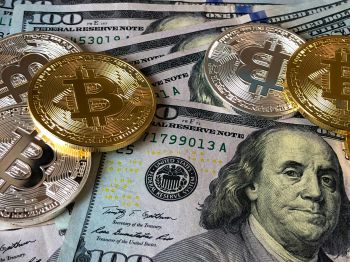
Image from Pexels, David McBee
New research from the University of Sussex, published today (August 5) has identified a large-scale shift from the UK to what researchers are terming the 'Dubai-Kong axis' as a new hotspot for illicit financial flows (IFFs) - money tied to corruption, organised crime and sanctions evasion.
Researchers at the University's School of Global Studies and Centre for the Study of Corruption have revealed significant shifts in the pattern of global IFFs. The research reveals how different types of 'dirty money', funds obtained through activities such as drug trafficking, corruption, fraud, or other criminal enterprises, flows around the world.
Led by Dr Daniel Haberly, researchers conducted a detailed analysis of multiple datasets over the course of four years. Their new study highlights the intricate links between politics, regulation, and the location of secretive shell companies and bank accounts used by a variety of actors to evade US sanctions, and to enable corruption and different types of criminal activities.
Among their findings is a seemingly large-scale shift in the global epicenter of dirty money networks to Dubai and Hong Kong. The UK has historically been at the centre of the global financial system, including for many types of illicit financial flows, and the financial activities of actors in US-sanctioned countries. Meanwhile Panama has long been a preferred financial hub for organised criminal groups.
This now looks to be changing, however, and the Sussex researchers have coined the term 'Dubai-Kong axis' to refer to the now leading as well interconnected role of Dubai and Hong Kong in global networks of dirty money.
Key findings from the paper include:
1. Shift in location of financial networks: Financial networks in countries under U.S. sanctions are moving from major Western financial centres, and above all London, to non-Western hubs, and above all Hong Kong and Dubai--referred to as the 'Dubai-Kong axis.' This is due to these cities' growing importance as financial centres that have strong connections across Asia, the Middle East, and the former USSR, but also maintain strong ties to the West, especially through their historical colonial links to the UK and London.
2. Legacy of the British Empire: The UK's direct involvement in many illicit financial activities seems to have decreased. However, its global network of former colonies including Hong Kong and Dubai, as well as territories that it still controls like the British Virgin Islands and Gibraltar, are more important than ever in illicit financial networks.
3. Organised criminal networks move away from Panama: Evidence suggests that Dubai and Hong Kong are becoming more important in organised criminal financial networks, while Panama's role has decreased since the Panama Papers were released.
4. USA and China have significant regulatory deficiencies: Offshore jurisdictions still have significant regulatory gaps, but the most important issues are now in the world's largest economies. Evidence suggests that the USA may have surpassed Switzerland as the international banking center of choice for corrupt transactions, with relatively weak anti-money laundering and counter-terrorism measures and significant financial secrecy.
Dr. Daniel Haberly commented: "These results tell us that networks of illicit financial activity can adapt quickly to changing regulatory environments, but in a way that is strongly shaped by established global financial connections and the political priorities of those cracking down on them.
"The Dubai-Kong axis has become the location of choice for actors under the highest pressure from the US and its allies, but other types of illicit financial activity have remained centred on the UK and its Overseas Territories or are even moving to the US itself due to its own regulatory lapses at home.
"We see that greater regulation and law enforcement can have an effect, which is good news for policymakers who want to stop their financial centres from being complicit in illicit financial flows. However, regulatory effectiveness hinges on political will, including the willingness of the world's most powerful countries to put their own affairs in order at home."
Professor Elizabeth David-Barrett, GI ACE Principal Investigator, noted: "This research provides a solid evidence base on which policymakers can act. The emergence of the Dubai-Kong axis has been the subject of anecdote and speculation until now, and this thorough analysis of global datasets means that we can now much more reliably track the relative rise and fall of centres of dirty money."






